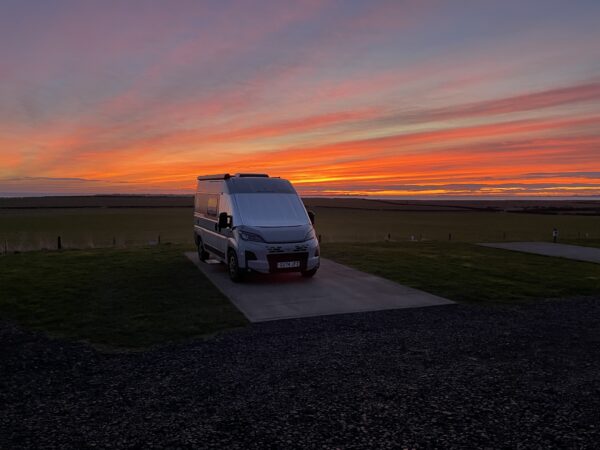I liked this funny and perceptive 5-minute film about AI, by Ari Frenkel. The more you’ve played with ChatGPT and the like, the more you’ll probably appreciate this.
Author Archives: qsf
Curiouser and curiouser
Amongst the more bizarre aspects of the Trump tariff announcements last night were the figures he came up with for the tariffs being charged by other countries.

Even people who are as unfamiliar with economics as I am wondered, “Where on earth did he get those from?” They didn’t seem to bear any resemblance to reality. And while lies are part and parcel of most Trump announcements, the numbers had to come from somewhere, surely?
Well, it turns out that’s because they’re actually not to do with tariffs at all. These are not extra costs being imposed by other countries. They are simply a measure of the trade deficit that the USA has with those countries. Or, to put it another way, the degree to which US citizens want stuff from your country more than your citizens want stuff from the US… that’s how much we’re going to punish your country.
The FT has more details and an appropriate dose of incredulity. As they point out, suppose your country sells lots of bananas to the US… Well, bananas don’t grow in the US, so Americans can’t buy them locally. But we’re still going to impose tariffs…
“The numbers [for tariffs by country] have been calculated by the Council of Economic Advisers … based on the concept that the trade deficit that we have with any given country is the sum of all trade practices, the sum of all cheating,”” a White House official said, calling it “”the most fair thing in the world.””
Faster horses

I do like collecting quotations. Here are some of the references to them on this blog, and I also have a collection of favourites here.
But one thing you quickly discover, if you dig a little deeper, is that a large proportion of the most popular favourites cannot be traced reliably to the people to whom they are commonly attributed.
And here’s the latest example I’ve found… If you’ve done anything related to innovation or product design, you’ve probably heard Henry Ford’s famous comment:
“If I had asked my customers what they wanted, they would have said a faster horse!”
This is pretty well-known, but, once again, there seems to be very little evidence that he ever actually said it. There’s a nice examination of the story on the Quote Investigator site.
If you’re like me, for some reason, you find this slightly disappointing. But it’s hard to work out quite why. Is it because, if we agree with a sentiment, and we then find that Henry Ford agrees with it too, it somehow validates our opinion? “You know, Henry Ford agreed with me on this…”
Anyway, I’ve written about this before, and you can find further discussion of this idea by clicking on the image below.
Gell-Mann Amnesia
My thanks to Kit Hodsdon, who, responding to yesterday’s post, pointed out that there was a name for a phenomenon related to something I discussed there: the Gell-Mann Amnesia Effect.
This term was first coined by Michael Crichton, and to quote the Wikipedia page linked above, it describes “the tendency of individuals to critically assess media reports in a domain they are knowledgeable about, yet continue to trust reporting in other areas despite recognizing similar potential inaccuracies.”
The page is worth reading for more info. For example:
‘The Gell-Mann amnesia effect is similar to Erwin Knoll’s law of media accuracy, which states: “Everything you read in the newspapers is absolutely true except for the rare story of which you happen to have firsthand knowledge.” ‘
And what about the name? Crichton said he had once discussed the effect with the physicist Murray Gell-Mann “and by dropping a famous name I imply greater importance to myself, and to the effect, than it would otherwise have”!
Very Artificial Intelligence
Regular readers might assume that I spurn all things AI-related, and this is not the case. I do use and occasionally derive benefit from the tools that tend to come under this all-embracing phrase du jour. But it does sometimes seem as if, for general questions, the LLMs can throw up wrong answers as often as right ones, and, like others, I then feel a compulsion to point this out. I had one week recently where three different ‘AI’ systems, in three completely different contexts, gave me three answers that were demonstrably wrong on key points.
So it’s important to know the answer before you ask them a question, in which case…
The real problem is the certainty with which assertions are made. There’s no expression of doubt, no humming and hawing, before the response.
Having been listening on my recent travels to the wonderful audiobooks of Patrick O’Brian’s stories, I thought it would be fun to ask ChatGPT about archaic naval terminology – did it know what was meant by ‘Three points off the larboard bow’.
It started with a cheery phrase along the lines of “Ah! Nautical terms! Always a source of interest.” and then went on to give various bits of authoritative information, even with helpful diagrams, but including the assertion that ‘A point in this context is one-eighth of a compass’s 360 degrees, so one point is 11.25 degrees.’
Mmm. Do a little calculation and you’ll see the problem.
I’m paraphrasing slightly, because when I went back to copy and paste the exact text, it had conveniently lost its history, and when I asked again, it made no mention of the ‘one-eighth’. (There are actually 32 ‘points’ on a compass, so the 11.25 degrees bit was correct. Four points are 45 degrees.) It’s a worrying thought: perhaps the system could detect that I was surprised and go back and cover its mistakes!
Anyway, it did get the rest of it right. ‘Larboard’ is an old word for ‘port’, which was abandoned in the mid-19th century because it sounded too similar to ‘starboard’. If yelled from the mast-top in the heat of battle in a gale, I guess this could cause problems. So ‘three points off the larboard bow’ means (roughly) 34 degrees to the left of the direction in which the ship is pointing.
Many, many years ago, when a couple of the projects I was working on started to get some press coverage, I remember noticing that, in general, every single article about my work contained errors. (There were a couple of exceptions — the Economist was one — but they were notable for their rarity.) These were generally unimportant mistakes, and they were made by well-intentioned journalists working for reputable papers back in the day when they could afford to do real research but who were, after all, humans. It was an important lesson for me in my youth: you can detect the errors in the things you know about, but remember that every article you read about anything is probably similarly flawed.
This is why I think it is important to keep taking note of the times we can detect wrong answers, because they will also happen in places that we cannot so easily detect. I wonder if adding more human-like phrases to the output of LLMs will enable us to take what they say with a pinch of salt, too? (Sea salt, of course.)
Time warp
I realise that I should be slightly more cautious about my use of phrases like ‘today’ and ‘this morning’ in my posts, since quite a few of my readers receive them by email the following day. In the days of the Trump regime, phrases like ‘The news looks a bit better this morning’ have a very limited lifespan!
Ah well. Here’s yesterday’s (or the day before yesterday’s) Matt cartoon:
Peace for our time?
How very strange to wake this morning thinking about Starmer and Trump – as Churchill and… Neville Chamberlain.
I’m sorry Neville, you really didn’t deserve that!
I didn’t think about either of them for long, though, because I’m in my campervan looking at Lindisfarne (just visible in the background), where I’ll be heading after breakfast, when the tide falls low enough to expose the causeway.
The bed is across the back of the van, which meant that I could quite literally open the window and look out at this view without my head leaving the pillow.
Peace for the time being, at least. And the news is more encouraging this morning too.
More coffee-pot nostalgia
For those who read this blog and haven’t yet exhausted their enthusiasm for Trojan Room Coffee Pot nostalgia, Peter Leigh has just produced what is perhaps the best video about it yet, on his ‘Nostalgia Nerd’ YouTube channel.
(Direct Youtube link, for those reading by email)
You’ll have to get busy skipping YouTube ads, but it’s very nicely done.
The most popular typeface you’ve never heard of
I came across an amazing article by Marcin Wichary at the weekend, about a font you’ve probably never heard of: Gorton. And that’s despite the fact that you probably encounter it very regularly.
The Hardest Working Font in Manhattan is a long web page, but even if you don’t read the whole thing, there’ll be plenty to catch your interest if you skip bits from time to time. There are even some interactive demos. But do read most of it, too.
It’s always good to be reminded, amidst so much of the online rubbish we see today, just how much brilliant work is also out there.
The end of End-to-End?
If you have heard about the UK goverment’s recent demand to Apple that it be given access to everyone’s encrypted data, you may have sighed a deep sigh, or you may have wondered what all the fuss was about.
This article by James O’Malley is a very nice summary.. Extract:
“The British constitution has many strange traditions. We open Parliament with a knock on the door by an official known as Black Rod. When a monarch is crowned, they are anointed with oils while hidden behind a curtain. And every few years, we hold a ritual debate about whether the government can force tech companies to break their end-to-end encryption.
It’s a solemn tradition, and you know how it goes: The government or security sources outline the pressing need to access the messages or cloud storage of terrorists and child abusers. Then the plan is revealed to be laughably unworkable, and finally, as per tradition, there’s an embarrassing climbdown and the status quo persists once again.
Anyway, the reason I mention this is that it’s that time again.”
And later…
“So it’s genuinely quite a shocking thing to see that the government has demanded this capability. Both in terms of the opaque way it has happened – the existence of the “”Technical Capability Notice”” was only revealed by a leak – and because nobody in the government appears to have asked the opinion of anyone who knows about computers first.”
Worth a read.
Thanks to Charles Arthur for the link.
Does this man never stop producing wonderful stuff?
Bill Bailey, a couple of years ago, though some of his comments are rather poignant today:
Are you unwittingly paying for AI?
I probably use a Microsoft Office product only about once or twice a year, since, for ages now, I’ve preferred Apple’s Pages, Keynote and Numbers for normal day-to-day stuff. (I definitely recommend getting to grips with them if you’re in the Apple world and aren’t taking advantage of them yet.)
But Rose needs to use Word and so, like many others, we reluctantly pay for an annual Office 365 Family subscription, and a few months ago, the price of that went up by a little over 30%, from £80 to £105.
But here’s the thing. You don’t have to pay that new price.
You see, in a move that is particularly sneaky even by Microsoft standards, what they actually did was to add a new feature that not many people want: the Copilot AI system. They called this enhanced plan ‘Microsoft 365 Family’ and migrated everyone on the old ‘Microsoft 365 Family’ to it, charging them for the new facility.
If, like me, you positively dislike it when your software pops up and says, “Would you like me to write this letter for you?”, then you should know that you can switch to ‘Microsoft 365 Family Classic’ and go back to the old price, and this also gets you a new feature: the absence of annoying AIs!
They don’t make this option easy to find, though. In my case, I was set up for recurring payments, and on the web site I had to go to the ‘Manage subscriptions’, say I wanted to cancel the recurring payment for ‘Microsoft 365 Family’, and was then given the ‘Classic’ option at the old price of £79.95.
My sincere thanks to the AtomicShrimp YouTube channel for this video which alerted me to this dastardly practice!
© Copyright Quentin Stafford-Fraser



Recent Comments